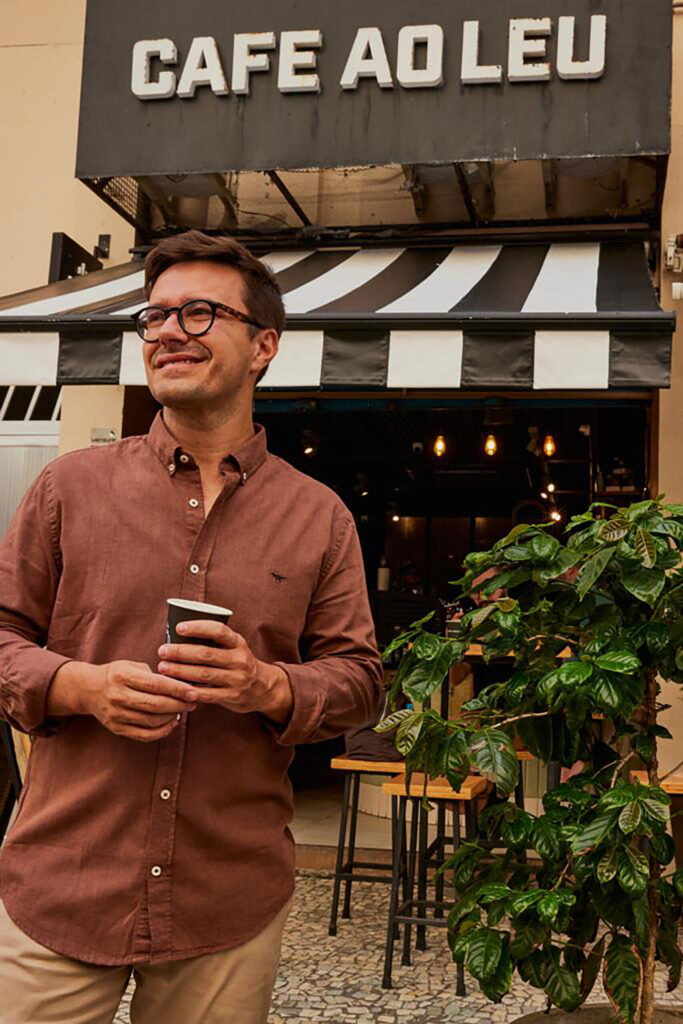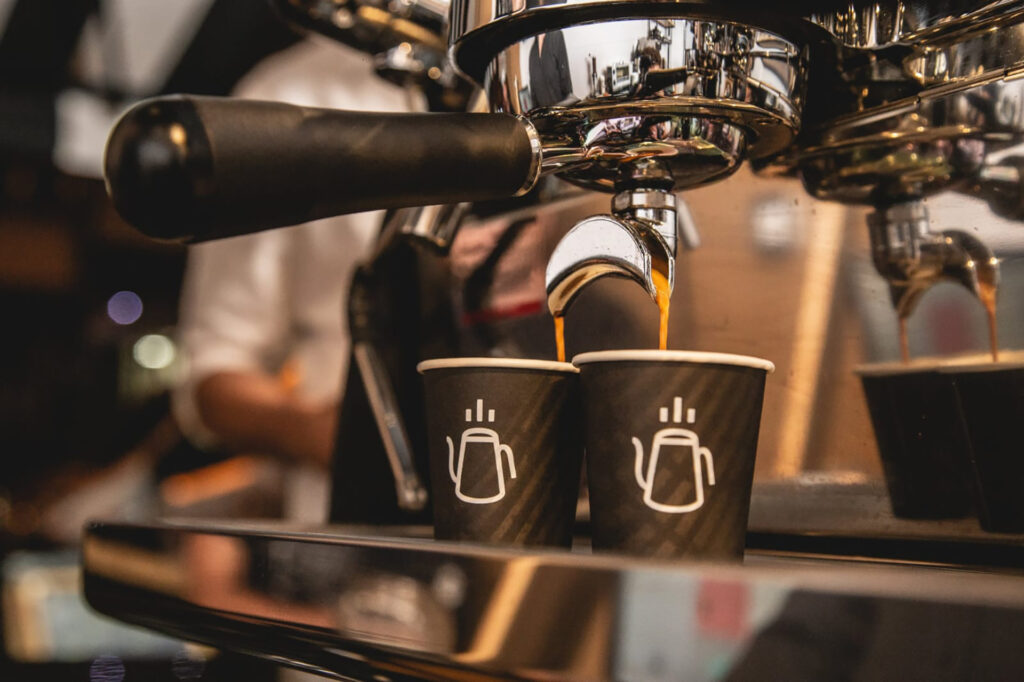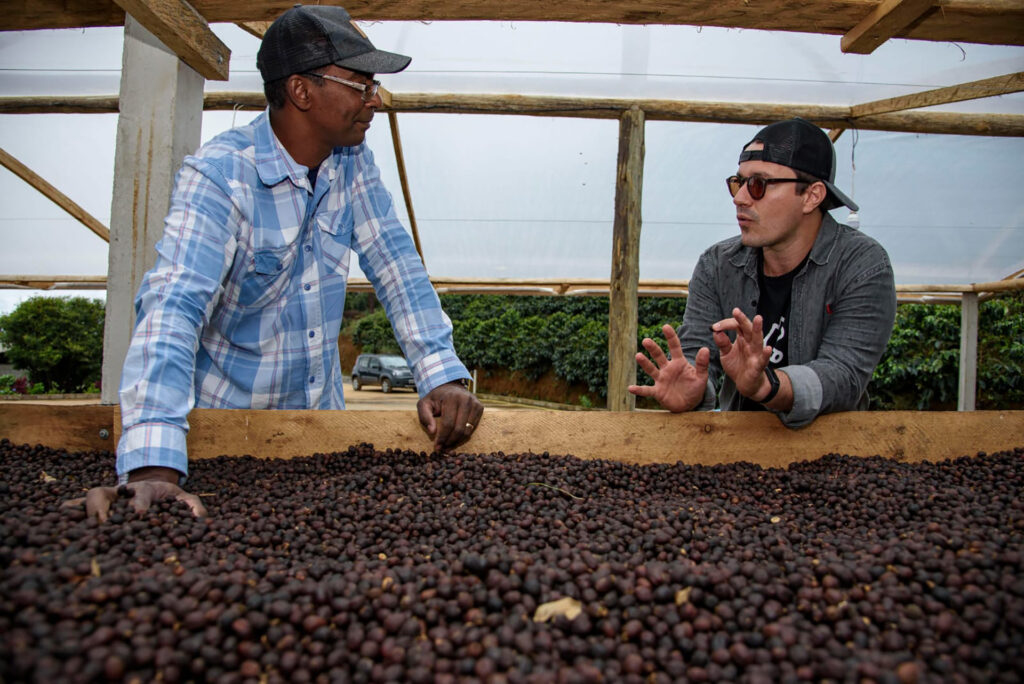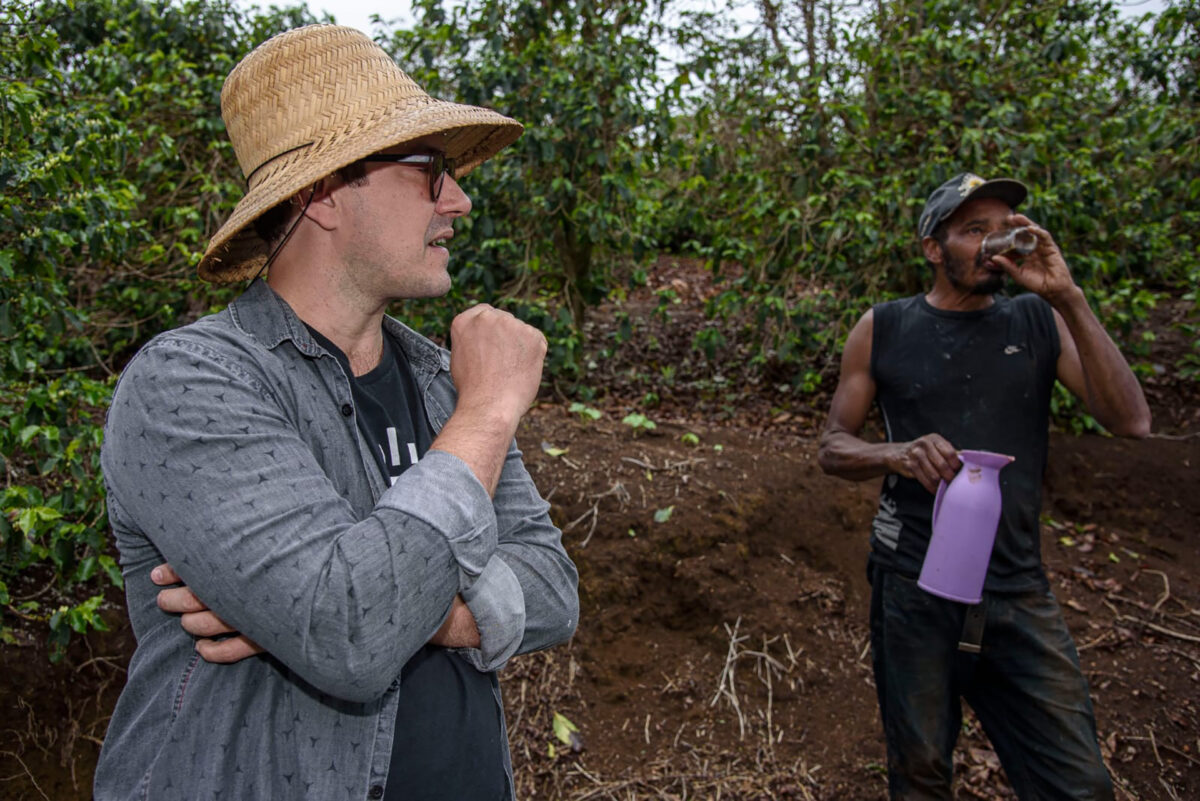Rio de Janeiro is a solar city. It’s known around the world for picturesque vistas, iconic beaches, and inventive characters.
One of these is barista and entrepreneur Leonardo Gonçalves, whose coffee bar, Café ao Léu, sits just a hundred meters or so from famous sands of Copacabana Beach. Gonçalves is a decorated coffee competitor and industry professional—winner of Rio’s ‘Barista of the Year’ award—but that’s just the beginning. His personal story is full of improbable plot twists. His trajectory somehow invokes the spirit of the town, like the city of Rio itself in the form of a life made in coffee. This story could only happen here.
Gafieira is a world unto itself. It’s sort of like ballroom dancing, but distinctly Brazilian, and based on the rhythms of salsa and samba. This was Leo Gonçalves’ world before he came into coffee, working as a dance coach and immersing himself in the Gafiera subculture of Rio, where the dance form originates and remains very popular. It was around this time he tried to apply to become a federal agent, and began consuming coffee in high doses to keep his mind tuned.

From sleepless nights studying came a deep interest and respect in coffee. Gonçalves considers himself a self-taught barista. “I learned and keep on learning on my own,” he tells me, “because when I decided to work with coffee, I got involved with an independent fair known as Junta Local here in Rio promoted by a group of small producers where they sold wine, beer, and cheese among other artisanal products. So, I started traveling and visiting small coffee farmers and dealing beans at this fair.” Gonçalves is still an active partner today on this project. Before opening Café ao Léu, he also worked for two years as a representative for a roastery, and at the same time attended some roasting courses and learned how to select beans, as well as getting to know most of the people involved in Rio de Janeiro’s coffee scene.
Copacabana is the most famous Brazilian beach worldwide, with a vast offering of international hotels along its sprawling beach avenue and surroundings. At the same time, it’s a place with high population density, and residents walk alongside visitors from all over the world.
When Leo opened his coffee shop in this bustling neighborhood, Gonçalves says he had difficulty finding a regular blend to please such an eclectic clientele. “I started with exotic coffees, but I soon realized that I needed to find a specialty beverage that was more full-bodied, less bitter, and with chocolatey notes to reach the median consumer and propel him to the next level,” he says. “We feel happy when the clients show interest in improving their taste perceptions, and our team is prepared to help with this, always respecting the customer’s desire.”

The pandemic was another unforeseen challenge he had to deal with when his business had just started heating up. “Unfortunately, we had to reduce our team, but we kept on buying, roasting, and sending beans and drinks to home customers. I took my scooter and got myself to delivering around the city,” he says, mentioning the sudden increased demand for their products, mainly through online sales. Many small businesses failed during this time, but this project thrived. At the end of 2020, Gonçalves took the next step, making the sort of business decision uniquely available to coffee professionals in places like Brazil.
He acquired a small estate with 3,000 coffee trees producing in Serra do Caparaó, Espírito Santo.
From a business perspective, a coffee shop acquiring its own coffee estate might look like planned verticalization. But for Leo there’s something more personal at play. “I like the Caparaó region,” he says, and someday I intend to live on the farm and dedicate myself full-time to coffee production.” Production under his management is in the hard work and learning phase. Still, some beans can already be tasted at his counter in Copacabana, alongside dozens of options from other small coffee producers from across Brazil, including Chapada Diamantina and Piatã in Bahia state, where terroirs produce extremely high-quality coffees, and from Serrado Mineiro and southern Minas Gerais.

“I love to get involved with the producers and learn about their stories, and sometimes I offer beans from fifteen different producers on my shelf,” says Gonçalves. Keeping a large number of options on hand is not always financially advantageous, but when he finds families producing pearls that deserve to be tasted by his customers, he buys without blinking. Along the way Gonçalves has become a household name in the Brazilian specialty coffee community, often traveling throughout Brazil and participating in international industry events from Milan to Greece to Seoul.
Today, Gonçalves represents the frontline of specialty coffee players in Rio de Janeiro, alongside other brave guys like Emerson Nascimento from Coffee Five and Felipe Bruzzi from Beco do Café and Pandora Coffee Roasters, who have crossed and survived a pandemic thanks to a high dose of effort and confidence in their business. Along the way he’s helping connect Rio’s coffee scene to the wider world, and establishing Copacabana as not just a hub for sun and fashion, but also outstanding coffee. Sometimes all these things can come together, as with a recent collaboration alongside Aviator, a traditional shirt making brand with a large following in Rio and beyond. Fernando Modenesi, who manages marketing at Aviator, is a regular at Gonçalves’s bar, and has the vision to see why a cafe like this is so important now. The story keeps getting deeper.
Paulo Pedroso is a regular contributor to Brazilian newspapers Folha de São Paulo and Valor Econômico, as well as Revista Espresso, a Brazilian specialty coffee magazine. Read more Paulo Pedroso on Sprudge.
Photos by Fabiano Albergaria, provided by Leonardo Gonçalves, unless otherwise noted.
